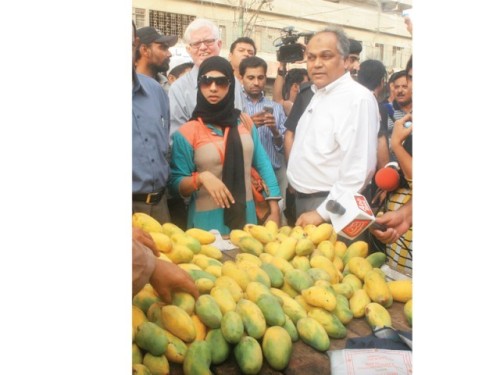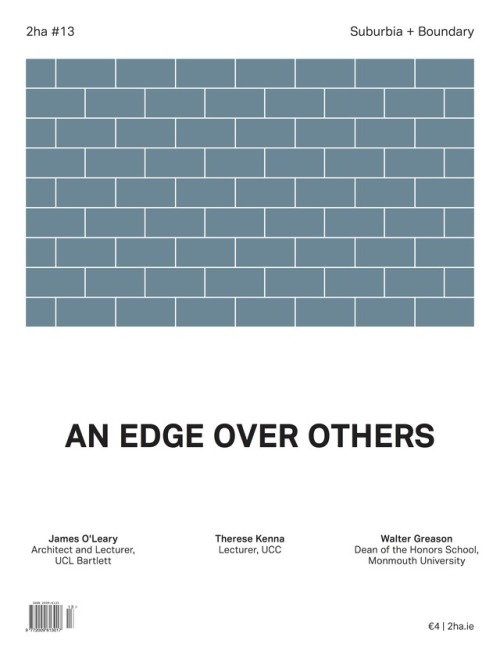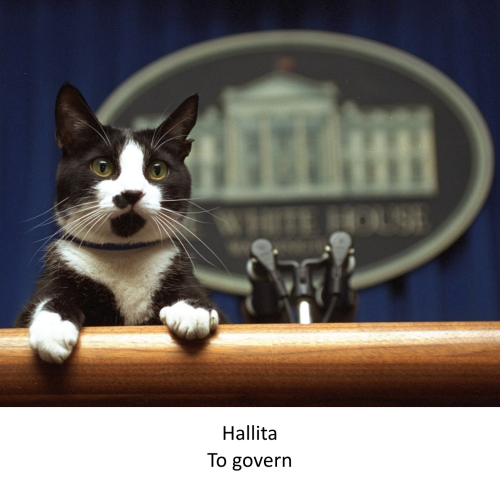#governance
how does it work when a company board agrees to an offer to buy the company like
if the company is publicly traded doesn’t that mean they’re effectively selling my stock for me
okay sure the board is elected by shareholders and tasked with acting in their interest
and they likely know my interest better than I do; if I buy some MCD I certainly trust their board to make better decisions on how to sell borgar than I could
so if the board thinks selling the company makes the shareholders more money than the discounted expected dividends, sure
but if I owned like 10% of a company and disagreed, I’d be upsett
Generally speaking, an friendly acquisition requires both board approval and a shareholder vote, so you can vote against. In practice, if you have 10% ownership, you can probably exercise a lot of influence over the board’s decision, too.
wait, so homeownership gets included in GDP as “imputed rents”? I mean, that maeks sense, but couldn’t we do the same thing for sex? Like every time you have sex with your spouse, the GDP goes up by the amount that it would have cost to pay for sex.
I think the more usual examples are stuff like paying for restaurant meals showing up versus the work done for homecooked meals not showing up, but yes, the issue of unpaid household labor and GDP is a real one.
Today I heard a former President of the Supreme Court of Israel say that there are rare cases in law where flipping a coin is the correct decision. (Of course, in those cases the judge should admit that they flipped a coin and expect everyone to agree that they were right to do it.)
As an example, he brought up a child custody dispute where the child is too young to have an opinion, both parents have an identically good claim, and you have to decide who gets which half.
Fun fact: in some US states, it’s the law that an election that’s an exact tie will be decided by coin flip.
Transgender moral police to clap down prices
“If you don’t stop profiteering, you will go to hell!” shrieked Payal, a transgender as she clapped her hands loudly at a poultry seller.
“Who are you to say that to me?” came the burly man’s meek response. He knew full well that he was helpless against this moral police. These transgender inspectors have been authorised by the city’s commissioner to go around in markets and scold, embarrass and complain against those selling commodities at higher rates.
Two hours before Iftar on Wednesday, transgender Payal and Fouzia, accompanied Karachi Commissioner Shoaib Ahmed Siddiqui and the assistant commissioner of Saddar to the Empress Market in raid against profiteers.
The commissioner has included eunuchs in the campaign against profiteering as he feels their presence across the city can be effective. “Their role in the drive will also help them get respect in society,” said Siddiqui. (complete news)
Follow us on Facebook | Twitter or Submit something or Just Ask!
Post link
“Nothing is more annoying than the image much of the world has of American presidents: a heroic action figure, a kind of cross between Harrison Ford, Clint Eastwood and Bruce Willis, with limitless power”
-Aaron David Miller, on the misconception about the US & the world that drives him crazy
Post link
“At the very moment when we should be remaking politics, we have at our disposal only the pathetic resources of “management” and “governance.” Never has a more provincial definition of humanity been transformed into a universal standard of behavior. At the very moment when we ought to be loosening the grip of the first Nature, the second Nature of Economics is imposing its iron cage more strictly than ever.”— Bruno Latour, Facing Gaia
2ha #13 is now available online.
Issue 13 considers the physical, legal, economic and symbolic borders which bind our everyday definition of suburban life. Three essays outline the contested nature of this space and the multiple means of separation made for the benefit of some, to the exclusion of others.
James O'Leary (Architect and Lecturer, UCL Bartlett) describes the origins of Belfast’s ‘Peace walls’, the shaping of the residential areas through which they run, and their continued impact on the development of the city.
Therese Kenna (Lecturer, UCC) discusses the shifting methods of boundary-making since the emergence of the modern suburb and how trends in design, urban governance, and the law are undermining the possibility of a shared metropolitan future.
Walter Greason (Dean of the Honors School, Monmouth University) highlights the conflagration of race, racism, urbanism, and economic development which persists, and is in some cases maintained by the chaotic application of zoning principles in the United States’ ex-urban edge.
For more information see 2ha.ie.
Post link
According to this year’s Global Prosperity Index, released by the Legatum Institute, Finland is the best governed country in the world. Congratulations! :)
If you want to see the full ranking - including the different categories -, check out the official website: http://www.prosperity.com/rankings
Post link
MeetMaria Pilar Lorenzo, social scientist and policy researcher
1) What do you do?
For the past few years, I have carried out research works that intersect with issues relating to governance and development. Some recent projects I participated in dwell on Philippine National Rightsizing Program (Local Government and Education sectors), local government innovations (Local Government Academy), and Rapid Field Appraisal on Philippine Decentralization, Democratization and Development (Philippine Society for Public Administration and United Nations Development Programme).
At the moment, I am focusing on my doctoral research project that seeks to flesh out the interplay of the Association of the Southeast Asian Nations and Philippine higher education by probing into the higher education policies and practices situated at regional, national, institutional and local levels.
2) Where do you work?
I joined as a PhD candidate at Ghent University’s Centre for Higher Education Governance Ghent last November 2020. I am also a Research Associate of the Philippine Society for Public Administration, a Fellow of the Society of Transnational Academic Researchers (STAR) Scholars Network, a Member of the Pacific Forum Young Leaders Program, a Member of the ASEAN Think Tanks Network (by invitation only), an Associate Member of the National Research Council of the Philippines, a Member of the Phi Kappa Phi Honor Society, and I was recently a Fellow of the Regional Academy on the United Nations and a Fellow of the Royal Society of the Arts.
3) Tell us about the photos!
[Left:] This is a screenshot from the virtual awarding ceremony of STAR Scholars Network’s 2020 A. Noam Chomsky Global Connections Award. I am truly honored to have received an award in honor of Professor Emeritus Chomsky, one of society’s highly respected thinkers.
STAR Scholars Network is a non-profit grassroots organization that pioneers open access to knowledge, catalyzes innovative teaching and virtual exchange, advances social justice for underrepresented communities, and supports the academic advancement of emerging scholars in the Global South.
[Right:] This photo was taken at Keukenhof in Netherlands. I jumped for joy when I saw the piano only to find out that it’s just for display. Anyway, I doubt if I could play again my memorized pieces because it’s been a long time that I have not practiced since I moved to Belgium for my graduate studies.
Although I am super far from being a virtuoso, one of the things that have accompanied me throughout life is music. Music, for me, carries with it various ambivalences. It can be luminous and dark, entertaining and tragic, peaceful and restless. I think it is the powerful effect of music penetrating through the recesses of weary and wounded souls that it can be that salutary emotional shock as Plato once contemplated the encounter with beauty.
4) Tell us about your academic career path so far.
I joined Ghent University’s Centre for Higher Education Governance Ghent as a Ph.D. candidate in November 2020, and recently completed Master of Science in International Politics and Advanced Master of Science in Cultures and Development Studies as a VLIR-UOS scholar at the Katholieke Universiteit Leuven and Master of Public Administration at the University of the Philippines.
The various scholarships I received have also enabled me to satisfy further my intellectual curiosity by participating in a number of academic programs organized by the Indiana University, University of Illinois, University of Lausanne, University of Copenhagen, United Nations University Institute on Comparative Regional Integration Studies, University of Hohenheim, Institute of Advanced Studies Köszeg, Charles University, National Graduate Institute for Policy Studies, University of Graz, Kobe University, and Santa Croce.
It is also an honor that I always take pride in being considered as a Scholar of the Nation at the University of the Philippines Integrated School/University of the Philippines Diliman Campus from kindergarten until graduate school. The kind of education I received there is not the usual trajectory of teaching a student to be employed well one day. In my personal experience, it is to sharpen all senses so that a student can be attuned to the victories and struggles of every age.
5) Anything else you’d like to share
I can describe myself as an avid reader and an eager learner, and this kind of personality has led me to pursue knowledge from an array of sources – leaving no stone unturned given the time, energy and resources that are available. My love for learning also implies getting trained in the needed academic rigor that any researcher has to undergo and learning from other sources that may not necessarily be found within an academic setting. It is for this reason that I like conversing with all sorts of people. I believe that every person is so unique that there is much to learn from whomever I have the privilege to meet.
Post link






